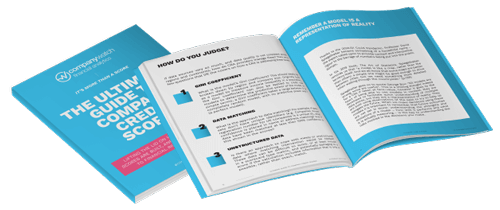2023: Year In Review With Philip King

2023 was marked by conflicts, high inflation and interest rates, and soaring insolvency. It was another challenging and fatal year for many UK businesses.
We asked Philip King to look back over the tumultuous past year, and discuss the key events that characterised 2023.
Philip King has spent 45 years working in front-line credit management, 14 of those years as Chief Executive of the Chartered Institute of Credit Management, and 18 months as the interim Small Business Commissioner for the UK.

Fraud cast a shadow over 2023
Fraud is a problem that plagues the UK economy year after year. 2023 was no different. Criminals have become sophisticated as they embrace new technology, posing serious risk to your business. They are capable of sidestepping the advanced security measures put in place by banks to protect customers and businesses. The yearly cost to the economy is staggering. Reports have estimated the cost is more than £200 billion each year. The UK Finance report for the first half of 2023 revealed some worrying figures:
- In the first 6 months of the year, criminals stole more than half a billion pounds.
- Banking security systems prevented another £651 million from being stolen.
- There was a 22% increase in Authorised Push Payments (APP) fraud compared with H1 2022.
- 77% of APP fraud originated on online platforms and outside of the banks' control.
Authorised Push Payment (APP) fraud
APP fraud was particularly prevalent in 2023, and you need to remain vigilant in 2024. This kind of fraud involves criminals tricking individuals into authorising fraudulent payments themselves, or stealing their personal information and impersonating them.
There were over 116,000 cases of APP fraud in the first 6 months of 2023. The utilisation of people's identities makes fraud increasingly hard to spot. For example, fraudsters might assume the identity of a trusted colleague asking the finance department to pay a supplier immediately via email. Appearing legitimate, the money is transferred and a business can lose thousands.
Businesses investing in sophisticated tools often have a much higher chance of catching and mitigating these kinds of fraud. Smaller businesses that tend to forgo spending on risk management solutions can find themselves in hot water when criminal activity slips through the cracks. Working with us can help you avoid making costly mistakes.
“Company Watch has a unique and effective approach to tackle the challenge presented by growing fraudulent behaviour. They pull together innovative and market-leading tools, like TextScore® and Forecast View™, that work in tandem to help businesses uncover and mitigate risk.”
Philip King
The ECCT Act
One of the positive aspects of 2023, was the passage of the Economic Crime and Transparency Act (ECCT Act) on the 26th of October. Money laundering costs the UK hundreds of billions annually. The act will focus on sweeping Companies House reforms to tackle growing fraud and money laundering. While it may take some time for the legislation to be fully implemented, it should improve the transparency and data accuracy of entities on the Companies House register.
Follow us on LinkedIn for the latest news and updates

Economic instability caused rising insolvencies
Continued economic instability saw insolvencies hit a 14-year high in 2023. The Insolvency Service reported a 2% increase year on year in December, with insolvencies hitting 2,002. A number of factors contributed to this tough year for UK business, including:
- Interest rates were hiked 14 consecutives times from December 2021, reaching a 15-year high of 5.25% in August 2023.
- Businesses forced to take out loans during the COVID pandemic struggled with higher rates in 2023.
- Following Russia's invasion of Ukraine in 2022, energy prices remained high in the first half of 2023.
- The cost of living crisis meant lower consumer spending throughout the year.
If the tough economic environment of 2023 taught us anything, it’s that having a clear and extensive picture of risk is essential. Insolvencies can have a catastrophic knock-on effect on the market.
“Often businesses don’t really understand the implications of insolvencies and other critical issues up and down the supply chain. For example, in the construction industry, if a main contractor goes bust, this often means all the subcontractors follow. The knock on effects of one insolvency can be devastating to the supply chain.”
Philip King

You can know your customers inside out, but how well do you know their customer? If you don’t have a clear picture of risk further down the supply chain, you are putting your business in a precarious position. A customer might seem low risk, but if one of their customers does not pay them, how much higher is that risk now? These are the vital questions you need to be asking in 2024.
Struggling sectors
The past year was tough for businesses across sectors, but some were hit harder than others. Retail, hospitality, construction and transport had a particularly difficult time. Increased wages, higher costs and soaring energy bills forced many businesses to cash out and walk away if they weren't already facing insolvency. Companies that managed to avoid closure are reporting serious issues with keeping themselves afloat in the face of more economic turbulence in 2024.
Late payment and government inaction
Late payment is a perennial issue and 2023 saw no improvement. It disproportionately affects SMEs, and can have a major impact on cash flow. SMEs account for two thirds of UK employment so late payments can have a devastating knock-on effect for the economy. Recent research by NatWest conveyed just how serious this issue was in 2023:
- Over a quarter of SMEs are owed between £5,000 and £20,000.
- 55% SMEs say that late payments have increased in 2023.
- 2.5 million SMEs say they can wait months for invoices to be paid.
- 44% of businesses said poor cash flow, as a result of late payments, was their biggest issue in 2023.
Various Government initiatives over many years have sadly had little impact. In Q4 of 2023, the government announced a plan to ensure larger companies pay their suppliers on time. One of the changes will require companies bidding for public sector contracts over £5m, from 1 April 2024, to demonstrate they pay their suppliers within 55 days, tightening to 45 days from 1 April 2025. While these measures are welcomed, it remains to be seen if they will impact real change for UK SMEs.
Outlook for 2024
Undoubtedly, 2023 was challenging for everyone and many of the issues faced will continue into 2024. But there are still some silver linings.
“The past year was tough but in some regards, it wasn’t as bad as expected. We weathered the storms of the pandemic, and Brexit, and came out the other side. We also avoided a massive recession.”
Philip King
Whatever 2024 brings, we can help make sure your business is prepared. At Company Watch, we’ve developed tools to give you an unbeatable edge when it comes to protecting your business in uncertain times.
If you want confidence when conducting business in 2024, arrange your free trial today.

